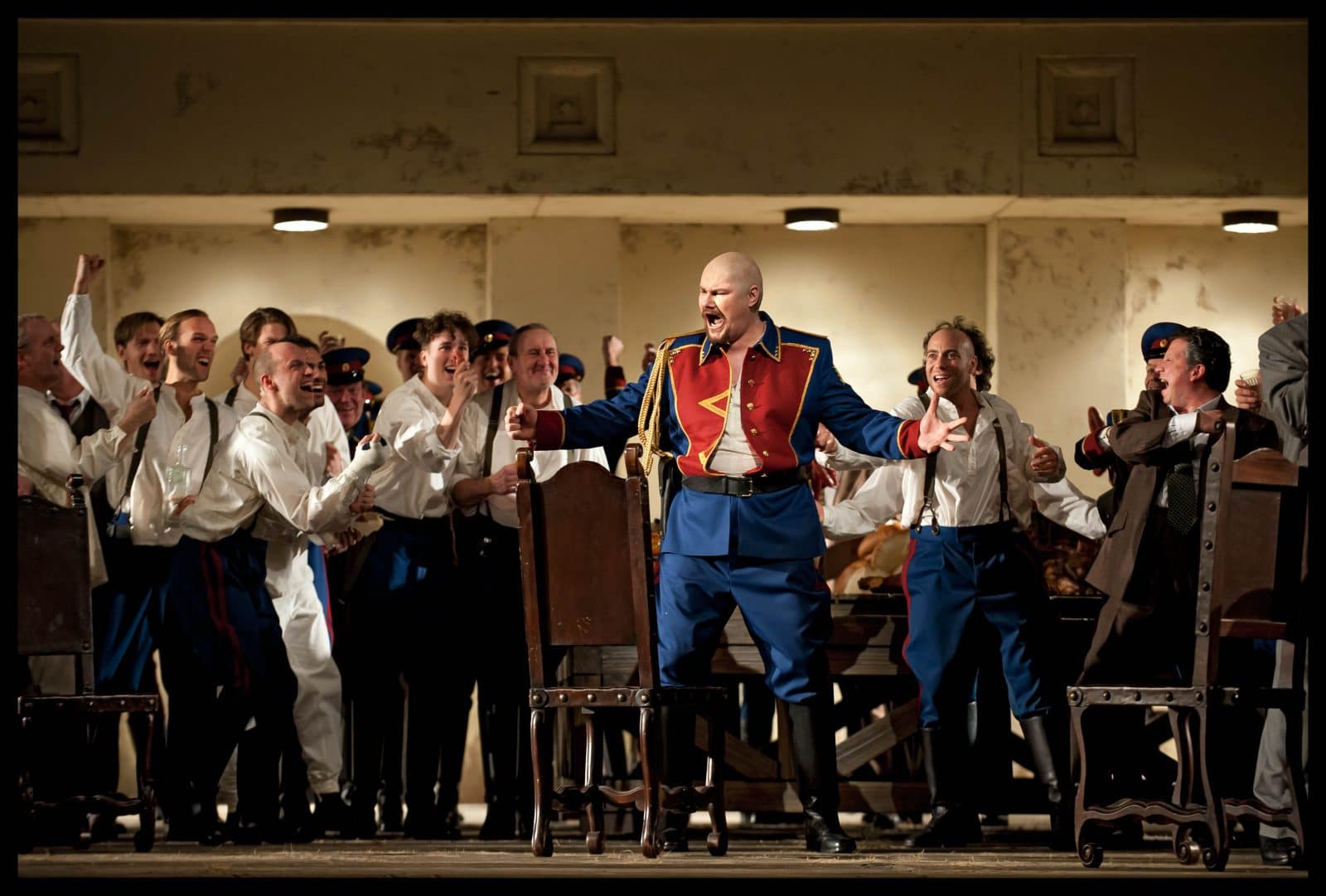'Unleashing war is the best way to escape from yourself,' we read on the gauze screen in front of the Stopera stage. Then the Rotterdam Philharmonic Orchestra begins Prince Igor By Alexander Borodin. A catchy one-liner, but it raises expectations that are not met. Musically, too, this co-production of The National Opera and the New York Metropolitan Opera to be desired.
The protagonist Igor Svyatoslavich, prince of Seversk, does indeed go to war, but there is an outside cause for this. The Poloviets are targeting Russia under the leadership of the feared Khan Kontshak. The Russian ruler suffers a humiliating defeat and at the end publicly repents. While this shows a refreshing display of self-reflection, it does not explain that Igor's wariness would stem from a troubled mind. Moreover, he is widely praised for his noble character; his people and wife Yaroslavna wear him on their hands.
Noble Russian versus noble Polovetser
Borodin based the libretto on several medieval sources and worked for years on his opera, which he left unfinished when he died in 1887. Director Dmitri Cherniakov made a selection from the version completed by Nikolai Rimsky-Korsakov and Alexander Glazunov, but also added other music by Borodin. The parts he left out he replaced with film scenes he shot himself in black and white. These strongly recall the images we know from World War I: anxiously looking around, bleary-eyed soldiers, dying a bloody death in the mud.
Igor survives and finds his match in Khan Kontshak, who even promises him his freedom if he renounces further war against his tribe. - Which Igor indignantly rejects. The role of Kontshak is sung with great empathy and sense of drama by Russian bass Dmitri Ulyanov. Confusingly, he also figures as Igor's brother-in-law, the power-hungry drunkard and womanising Galitsky. - A role, incidentally, that he conveys with equal verve and a beautifully deep bass. Ulyanov rightly received the biggest applause afterwards.

Clichéd gestures
The equally Russian baritone Ildar Abdrazakov (Igor) is no match for Ulyanov in terms of either voice or charisma. He sings as if reciting the telephone directory and lacks the necessary breath support, especially in the low register. Nor does the Ukrainian soprano Oksana Dyka convince as his wife Yaroslavna. Her in itself beautiful voice is marred by shrill sounds in the high register and gradually becomes more amiable and impure. During her lament in the third act, you personally want to put her out of her misery. The mezzo-soprano Agunda Kulaeva (Kontshakovna, daughter of the Khan) has a better technique, but she too fails to move.
Well, the singers are certainly not helped by Tcherniakov's persona direction. The clichéd, wide-eyed, outstretched arms and desperate looks even start to make you laugh in the long run. That the director has the National Opera Chorus sing from the balconies at crucial moments is not a smart move either. In the rousing Polovetser Dancing orchestra and singers are sometimes quite out of sync. The choir sings excellently, but lacks the sonorous buzzing sound so characteristic of Russian music.
Graceful but not enough Russian
Conductor Stanislav Kotsyanovsky leads the Rotterdam Philharmonic Orchestra through the colourful score with graceful gestures. He gives ample scope to compelling solos in wood and brass, excellently performed especially by (alto) oboe, flutes, clarinets and horns. His approach is subtle and his dynamics cautious, making the music somewhat uniform in the long run. You start to yearn for the extreme contrasts with which their former chief conductor Valery Gergyev managed to propel the Rotterdammers to scorching interpretations in Russian repertoire.
During the four-hour performance, there were only two moments of poignancy. When the boars inform Yaroslavna that Igor has lost the battle and the enemy is advancing towards the city, majestic clarion calls accompany a tuneful male choir. Another goosebump moment is just before the finale. Rhythmically scanned cries of cheers ring out as the people behold the returned Igor. After this, the opera extinguishes like a night candle.
Four hours is a long time. Too long for a story without significant dramatic development. That too must have been understood by Borodin, who even after 15 years of toil Prince Igor left unfinished.
Prince Igor can still be seen until 26 February. More info and tickets via this link.
